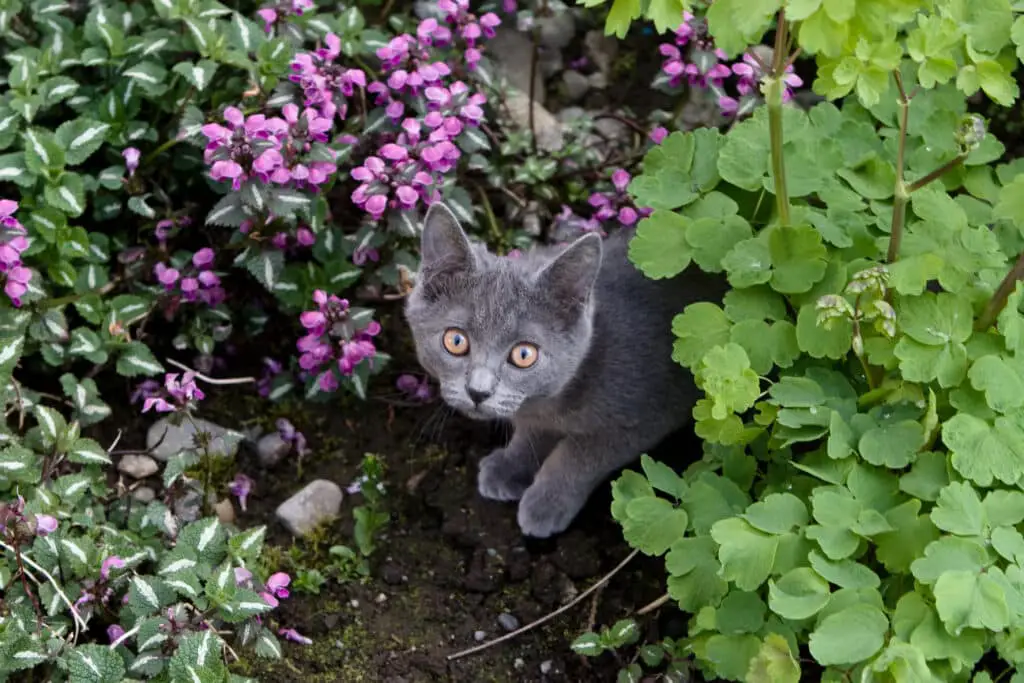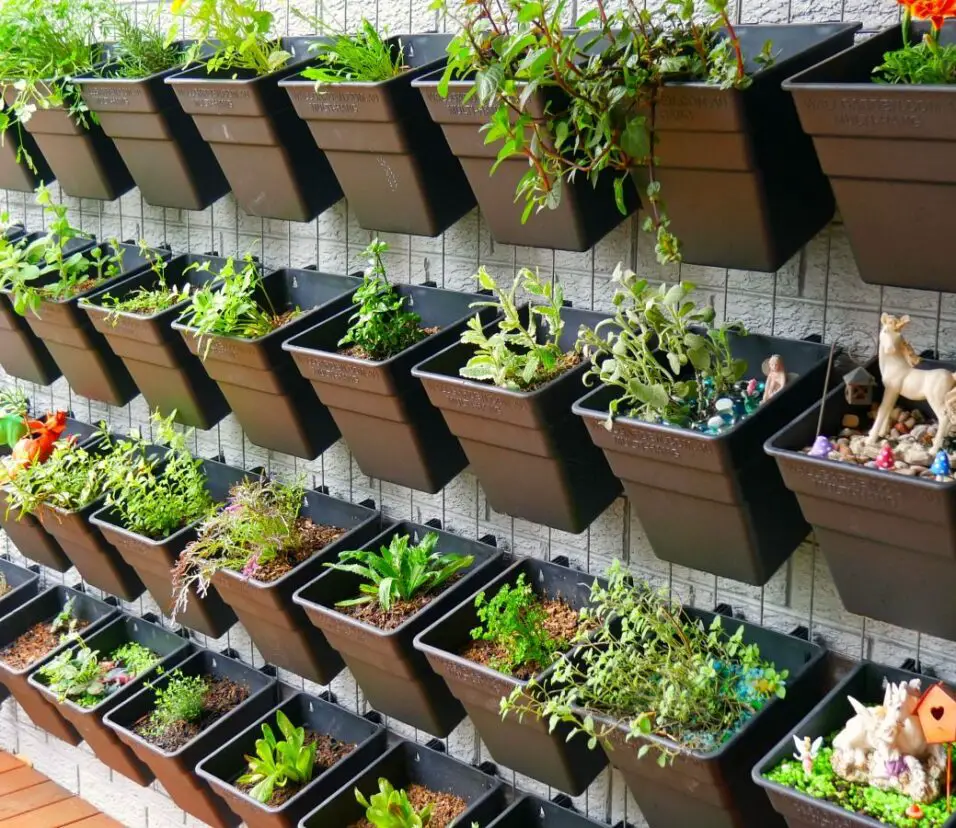How To Keep Cats Out Of Gardens
Introduction
How To Keep Cats Out Of Gardens: Gardening can be a rewarding and therapeutic hobby, allowing us to connect with nature and create beautiful outdoor spaces. However, one common challenge that many gardeners face is keeping cats out of their gardens. While cats are beloved pets for many, their natural instincts can lead them to use gardens as their personal litter boxes or to dig up plants. This can be frustrating for gardeners who have put in time and effort to create a beautiful garden. In this article, we will explore some effective strategies to keep cats out of gardens and protect your plants.
There are several reasons why it is important to keep cats out of gardens outdoors. Firstly, cats can cause damage to plants by digging them up or using them as scratching posts. This can result in the destruction of delicate flowers, vegetables, or herbs that you have carefully cultivated. Additionally, cats may use gardens as their litter boxes, leaving behind unpleasant odors and unsightly messes. This can make spending time in the garden unpleasant for both you and your guests. Furthermore, if you have allergies or sensitivities to cat dander, having cats in your garden can trigger uncomfortable symptoms.
Now that we understand the importance of keeping cats out of gardens, let’s explore some effective strategies to achieve this. One approach is to create physical barriers that prevent cats from entering your garden. This can be done by installing fences or using netting to cover vulnerable areas. Another option is to use natural deterrents, such as planting certain types of plants that cats dislike, such as lavender or rue. Additionally, you can try using scent-based deterrents, such as citrus peels or coffee grounds, which cats find unpleasant. Finally, providing an alternative space for cats, such as a designated area with a sandbox or scratching post, can help redirect their attention away from your garden.

What can I put around my garden to keep cats out?
Push pine cones or other prickly yard trimmings (maybe fall leaves) down into the soil around your plants. Stone mulch, eggshells, holly cuttings or repurposed plastic carpet runners with the nub side up are other options. Repurpose wooden chopsticks as garden stakes! Experiment with spacing.
There are several effective methods to keep cats out of your garden. Cats can be a nuisance when they use your garden as their personal litter box or when they dig up your plants. Fortunately, there are simple and humane solutions to deter cats from entering your garden.
One option is to use physical barriers to keep cats out of your garden. This can include installing a fence around your garden or using chicken wire or mesh to cover the soil. Cats are agile climbers, so make sure the fence is tall enough and the mesh is securely fastened to prevent them from getting in. Another option is to use prickly materials, such as thorny branches or pinecones, around the perimeter of your garden. Cats dislike the sensation of walking on these uncomfortable surfaces and will be deterred from entering.
Keep cats out of your garden
Another effective method is to use scent deterrents to keep cats away. Cats have a strong sense of smell, so certain scents can be repulsive to them. Citrus peels, coffee grounds, and vinegar are all natural deterrents that can be scattered around your garden to discourage cats from entering. You can also purchase commercial cat repellents that contain strong-smelling ingredients like lavender or peppermint. These can be sprayed around your garden or applied to specific areas where cats tend to frequent.
Additionally, you can create a cat-friendly area in your yard to redirect their attention away from your garden. This can be done by setting up a designated space with a sandbox or a patch of loose soil where cats can dig and relieve themselves. By providing an alternative area for cats to satisfy their natural instincts, they will be less likely to venture into your garden.
Lastly, consider using motion-activated deterrents to startle cats and discourage them from entering your garden. These devices emit a sudden burst of water or emit a loud noise when they detect motion. This can be an effective way to train cats to stay away from your garden, as they will associate the unpleasant experience with entering the area.
What is the most effective cat repellent?
Cats don’t like many common household smells, like citrus or coffee. Place citrus peels, coffee grounds, eucalyptus, or cayenne pepper along your fence or the border of your garden. Ultrasonic cat deterrent. These devices, which are triggered by motion sensors, emit an ultrasonic alarm.
When it comes to keeping cats away from certain areas, finding the most effective cat repellent can be a challenge. Whether you want to protect your garden from feline intruders or keep your furniture scratch-free, there are several options available. However, not all cat repellents are created equal, and what works for one person may not work for another.
One of the most popular and effective cat repellents is citrus. Cats have a strong aversion to the smell of citrus fruits, such as oranges and lemons. You can use this to your advantage by placing citrus peels or spraying citrus-scented sprays in the areas you want to keep cats away from. The strong smell will deter them from coming near.
Choice for cat repellents
Another effective cat repellent is motion-activated sprays. These devices use sensors to detect when a cat is approaching and release a burst of water or air to startle them. This not only keeps cats away but also teaches them to associate the area with an unpleasant experience, making them less likely to return.
Ultrasonic devices are also a popular choice for cat repellents. These devices emit high-frequency sounds that are inaudible to humans but irritating to cats. The sound is unpleasant for cats and will deter them from coming near the area where the device is placed.
If you prefer a more natural approach, there are several plants that cats dislike. These include lavender, rosemary, and rue. Planting these in your garden or placing them in pots around your home can help keep cats away.
Ultimately, the most effective cat repellent will depend on your specific needs and preferences. It may require some trial and error to find the method that works best for you. However, by using a combination of these methods, you can create a cat-free zone in your home or garden.
What smells do cats hate in garden?
Cats dislike the smell of rue, lavender and pennyroyal, Coleus canina and lemon thyme. Plant a few of these throughout the garden.
Cats may have a strong preference for some odors (like catnip), but also have strong aversions to others, especially when it comes to their outdoor domain (like the garden).
Citrus is one of the garden’s smells that cats absolutely despise. That fruits have a particularly potent aroma, which may explain why cats instinctively recoil from them. Is an effective natural repellent since its strong aroma will drive cats away from garden areas. Citrus peels or citrus-scented sprays can be scattered about the garden to generate this effect.
Vinegar is another smell that drives cats away from the garden. Vinegar’s pungent odor is unpleasant to cats and can be used to keep them out of trouble spots. Dilute vinegar with water and spray it around the garden to deter cats from entering.
Another aroma that drives cats away from the garden is pepper. Cats may avoid particular locations if the peppery aroma is too strong for their sensitive noses. It is possible to deter cats from a garden by using pepper as a deterrent.
Cats don’t like the scent of lavender in the garden. Cats do not share their owners’ affinity for the relaxing aroma of lavender. Lavender’s potent aroma can be utilized as a natural repellent to keep cats out of specific horticultural areas. Lavender, either in the form of plants or sprays, has been shown to deter cats.
What smell do cats hate the most?
Citrus – lime, lemon, orange, mandarin & grapefruit
Topping the list of smells cats really detest is citrus. Felines absolutely hate any citrusy smell. In fact, citrus smells are so famous for being hated by cats that companies make cat repellants using citrus-derived enzymes.
Cats have a highly developed sense of smell, which is much more sensitive than that of humans. They rely on their sense of smell to navigate their environment, communicate with other cats, and detect potential threats or prey. While cats are known for their love of certain smells, such as catnip or certain types of food, there are also smells that they strongly dislike. One of the smells that cats hate the most is citrus.
Citrus fruits, such as oranges, lemons, and grapefruits, contain a compound called limonene, which is responsible for their strong scent. This compound is highly irritating to cats and can cause them to become agitated or even exhibit signs of distress. The smell of citrus can also be overwhelming for cats, as their sense of smell is much more powerful than ours.
Smell that cats hate
Another smell that cats hate is that of certain herbs, such as lavender, mint, or rosemary. While these herbs may be pleasant to us, they can be overwhelming for cats and may even cause them to avoid certain areas of the house where these smells are present. Some experts believe that cats dislike the strong, pungent smell of these herbs, while others suggest that it may be due to the fact that cats have a different sense of taste and smell than humans.
In addition to citrus and certain herbs, there are other smells that cats dislike, such as vinegar, ammonia, or certain cleaning products. These smells can be irritating to cats and may cause them to avoid certain areas or objects that have been exposed to these odors. It is important to note that while cats may dislike certain smells, their preferences can vary from cat to cat. Some cats may be more sensitive to certain smells than others, so it is important to observe your cat’s behavior and reactions to different smells.
What is the best natural cat repellent for gardens?
To keep cats away from gardens, flower beds, or specific areas of property, scatter fragrant items that don’t appeal to a cat’s sense of smell, like fresh orange or lemon peels, organic citrus-scented sprays, vinegar, or oil of lavender, lemongrass, citronella, or eucalyptus.
When it comes to keeping cats out of your garden, there are several natural repellents that can be effective. These repellents are a great alternative to chemical-based products, as they are safe for both cats and the environment. However, it’s important to note that no repellent is 100% foolproof, and some cats may still be persistent despite your best efforts. That being said, let’s explore some of the best natural cat repellents for gardens.
1. Citrus peels
Cats dislike the smell of citrus, so placing citrus peels around your garden can help deter them. You can scatter the peels directly on the ground or blend them with water to create a spray. Just be sure to replace the peels or reapply the spray regularly to maintain their effectiveness.
2. Coffee grounds
Coffee grounds not only act as a natural fertilizer for plants, but they also repel cats. Sprinkle used coffee grounds around your garden to create a barrier that cats will avoid. Additionally, coffee grounds can help improve the soil’s drainage and add nutrients to your plants.
3. Lavender
Cats are not fond of the strong scent of lavender. Planting lavender bushes or placing dried lavender sachets around your garden can help keep cats away. Lavender also attracts beneficial insects, making it a win-win for your garden.
4. Rosemary
Another herb that cats dislike is rosemary. Planting rosemary bushes or using rosemary essential oil as a spray can help deter cats from your garden. Plus, rosemary is a versatile herb that can be used in cooking and has many health benefits.
5. Motion-activated sprinklers
While not a natural repellent per se, motion-activated sprinklers can be an effective deterrent for cats. These sprinklers are triggered by movement and release a burst of water, scaring away any cats that venture into your garden. This method is particularly useful if you have a persistent cat problem.
There are several effective methods for keeping cats out of gardens. One method is to create physical barriers such as fences or netting around the garden area. This can prevent cats from entering the garden and causing damage. Another method is to use scent deterrents. Cats are known to dislike certain smells such as citrus, lavender, or coffee grounds. Sprinkling these scents around the garden can help deter cats from entering. Additionally, you can try using motion-activated sprinklers or ultrasonic devices that emit high-frequency sounds when cats approach the garden.
It is also important to make sure that your garden does not provide any attractive features for cats. Remove any potential hiding spots such as dense shrubs or piles of leaves. Avoid leaving out food or water bowls that may attract cats. Finally, consider providing an alternative space for cats to play and explore, such as a designated cat-friendly area with scratching posts and toys. This can help divert their attention away from your garden.
Are there any natural deterrents that can be used to keep cats away from gardens?
Yes, there are several natural deterrents that can be used to keep cats away from gardens. One effective method is to use citrus peels or sprays. Cats dislike the smell of citrus, so placing orange or lemon peels around the garden or spraying citrus-scented sprays can help deter them. Another natural deterrent is using coffee grounds. Cats do not like the smell of coffee, so spreading used coffee grounds around the garden can help keep them away.
Additionally, certain plants can act as natural deterrents for cats. For example, planting lavender, rue, or pennyroyal can help repel cats from the garden. These plants have strong scents that cats find unpleasant. Another natural deterrent is using motion-activated sprinklers. These sprinklers detect movement and spray water, which can startle and deter cats from entering the garden.
What are some common mistakes people make when trying to keep cats out of gardens?
When it comes to keeping cats out of gardens, there are a few common mistakes that people often make. One of the biggest mistakes is relying solely on physical barriers, such as fences or netting, to keep cats out. While these barriers can be effective to some extent, cats are agile creatures and can often find a way to bypass them. It’s important to remember that cats are excellent climbers and jumpers, so simply putting up a fence may not be enough to keep them out.
Another mistake people make is using strong-smelling deterrents that are unpleasant for both cats and humans. While it may seem like a good idea to use strong scents, such as ammonia or citrus, to deter cats, these odors can also be harmful to the environment and other wildlife. It’s important to find a balance between deterring cats and maintaining a safe and healthy garden environment.
Are there any specific plants or flowers that can help repel cats from gardens?
Yes, there are several plants and flowers that can help repel cats from gardens. One popular option is the Coleus canina, also known as the “”scaredy cat plant.”” This plant emits an odor that cats find unpleasant, deterring them from entering the garden. Another effective plant is the rue, which has a strong scent that cats dislike. Planting lavender, rosemary, or pennyroyal can also help repel cats, as these plants have strong fragrances that cats find offensive.
In addition to these plants, there are certain flowers that can help keep cats away. Marigolds, for example, have a strong scent that cats find repulsive. Planting marigolds around the perimeter of your garden can create a natural barrier that cats are less likely to cross. Another flower that can repel cats is the geranium. The strong smell of geraniums is known to deter cats from entering the garden.
How can I create a cat-friendly space in my garden to divert their attention away from other areas?
Creating a cat-friendly space in your garden can be a great way to divert their attention away from other areas. One effective method is to provide them with a designated area where they can scratch, play, and relax. This can be done by setting up a scratching post or a cat tree in a corner of your garden. Make sure to choose a sturdy and stable structure that can withstand the cat’s weight and movements.
Additionally, you can create a cozy spot for them by placing a comfortable bed or blanket in a shaded area. Cats love to lounge and nap, so having a designated resting spot will encourage them to spend more time in that area. You can also add some cat-friendly plants, such as catnip or cat grass, which can provide them with a source of entertainment and stimulation.
It’s important to make sure that the cat-friendly space is separate from other areas of your garden that you want to keep cat-free. You can use physical barriers, such as fences or hedges, to create a boundary between the two areas. This will help prevent the cats from wandering into areas where they are not welcome. By providing them with their own space, you are giving them an outlet for their natural behaviors and instincts, which can help reduce their desire to explore other parts of your garden.

Conclusion
Keeping cats out of gardens can be a challenging task, but with the right strategies and techniques, it is possible to create a cat-free environment. Gardeners may successfully preserve their plants and maintain a tranquil outdoor space by learning the reasons why cats are drawn to gardens and employing deterrents such as physical barriers and scent repellents.
One effective method to keep cats out gardens is by installing physical barriers. This can include fences, netting, or chicken wire around the perimeter of the garden. These barriers create a physical barrier that prevents cats from entering the garden and causing damage. Additionally, it is important to ensure that the barriers are tall enough to prevent cats from jumping over them and that they are securely installed to prevent any gaps or openings.
Another strategy to deter cats from gardens is by using scent repellents. Cats have a strong sense of smell, and certain scents can be unpleasant and repulsive to them. Planting strong-smelling herbs, such as lavender, rosemary, or rue, can help deter cats from entering the garden. Additionally, scattering citrus peels or using citrus-scented sprays can also be effective in keeping cats away. It is important to regularly refresh these scent repellents to ensure their effectiveness.
While it may require some effort and experimentation, keeping cats out of gardens is possible. By implementing physical barriers and using scent repellents, gardeners can create a cat-free environment and protect their plants. It is important to remember that each cat is unique, and what may work for one may not work for another. Therefore, it may be necessary to try different strategies and adapt them based on the specific needs and behaviors of the cats in the area. With patience and persistence, gardeners can enjoy their gardens without the interference of cats.








